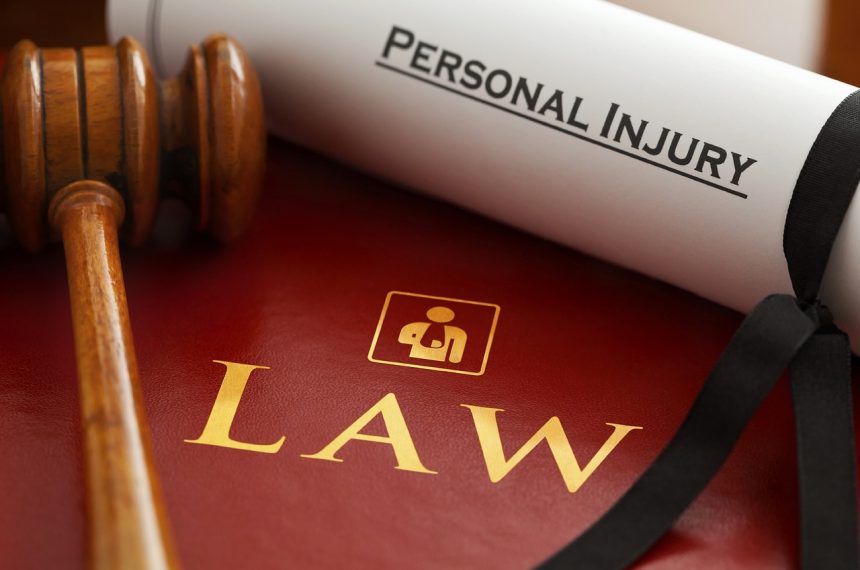Happy To Discuss About Your Requirement? Get a Quote

Have you been injured because of someone else’s negligence? Knowing about personal injury law can help you understand your rights and the steps to seek compensation. This guide covers everything you need to know about personal injury law. From the elements of a case, types of cases, compensation, and more.
Tort law, often called personal injury law, establishes the legal rights of individuals who suffer harm due to someone else’s actions. It is concerned with civil accountability where the responsible party is obligated to compensate the injured individual financially. Personal injury law diverges from criminal law by not aiming for punishment but rather ensuring restitution and reparation for the person harmed through monetary means.
Within personal injury cases, those suffering harm—the plaintiffs—initiate a lawsuit in a civil court against whoever caused their injuries, whether it be a person or an entity. The origins of such claims are diverse and can include events like car accidents, falls resulting from negligence on-premises, or medical malpractice. Success hinges on showing that negligent behavior or deliberate misconduct by the defendant led directly to the plaintiff’s damages requiring indemnification.
The scope of personal injury laws meticulously dictates when claims may be filed, delineates involved parties’ responsibilities, and designates necessary evidence for successful litigation outcomes. This structure assists victims wronged by another’s conduct in seeking fair resolution and financial recovery pertinent to their sustained injuries.

The second critical component involves the breach of said duty. This happens when someone neglects to exercise reasonable care thus failing their responsibility towards others. When considering a car accident scenario, this could manifest as a motorist ignoring traffic signals or engaging in distracted driving by texting. The plaintiff is tasked with showing that such conduct by the defendant constituted a violation of the owed duty of care.
Thirdly comes the cause. It demands that plaintiffs illustrate how their injuries were directly linked to – and would not have happened absent – the negligent actions on the part of the defendant while also establishing that those actions should predictably result in such harm.
Lastly, damages constitute actual losses incurred by the plaintiff due specifically to what can reasonably be regarded as wrongful behavior from the defendant—this very aspect underpins claims for recompense within these cases.
Personal injury law encompasses a variety of case types, with car accidents being one of the most prevalent. These incidents often stem from irresponsible or negligent driving behavior and can lead to severe physical harm, significant property damage, and psychological distress for those involved. Victims must pursue just compensation for these losses.
Slip and fall cases are another prominent aspect of personal injury law where unsafe conditions on premises due to neglect by property owners lead to accidents. Common contributing factors include slippery surfaces, irregular flooring, or inadequate lighting that results in injuries. Individuals affected by slip and fall incidents may incur considerable healthcare costs alongside other expenses associated with their recovery.
Within the realm of personal injury law lies medical malpractice, which occurs when healthcare professionals deviate from established standards resulting in patient harm. This encompasses errors made during surgery, incorrect diagnoses, or improper medication administration among others. Those who suffer as a result face potentially long-lasting health issues along with substantial financial strains.
Injuries stemming from defective merchandise pertain to product liability claims within this branch of legal practice too—holding producers responsible if consumers experience harm through normal usage because safety measures were compromised either during manufacture or distribution processes shows accountability against risks posed by potential flaws present in products.
In personal injury claims, individuals can seek three main types of compensation: economic damages, non-economic damages, and punitive damages. Economic damages compensate for quantifiable financial losses such as medical bills and wages lost due to the injury. Accurate documentation like receipts for medical care and wage statements is essential in establishing these costs to ensure appropriate reimbursement.
When it comes to intangible setbacks like pain and suffering or diminished quality of life, non-economic damages come into play. These compensations are more abstract than their economic counterparts and depend heavily on the specific circumstances of each case. The severity with which a person’s daily existence, relationships, and mental state have been affected by an injury is taken into account when determining these awards.
Lastly, punitive damages may be imposed if there’s strong proof that gross negligence or willful harm occurred. Their purpose stretches beyond mere compensation. They aim both to penalize those at fault severely enough that similar misconduct is discouraged in the future. Though not awarded in every personal injury case, they serve as a vital tool for justice against particularly heinous acts of negligence or intentional harm.
If you’ve suffered a personal injury, it is vital to have an experienced personal injury attorney by your side. These lawyers are champions for their clients, adeptly guiding them through the legal maze while ensuring they meet crucial deadlines. Experienced in evaluating case strength, securing evidence, and negotiating settlements, these attorneys play a pivotal role in advocating for their client’s rights.
An essential aspect of an injury attorney’s role is also to provide emotional support during what can be an overwhelming time. They appreciate the turmoil that accompanies personal injuries and work diligently to provide care and tailored advice so that individuals feel supported and well-equipped with knowledge as they proceed with confidence under the counsel of skilled legal representation.
Consider Alpha Law Group, which prides itself on over forty years of experience handling personal injury lawsuits—with clear communication and focused individualized care at every step. This caliber of attentive service reflects the ethos common among dedicated expert practitioners within this field.
In the realm of personal injury law, strict liability is a key doctrine that establishes responsibility for damages irrespective of intent or negligence. It eases the burden on plaintiffs by eliminating the need to demonstrate fault in terms of mental state when pursuing restitution. Defective product incidents, some animal attacks, and intrinsically dangerous activities often invoke this legal principle.
For example, with dog bites, strict liability dictates that proof of owner negligence isn’t necessary for an injured party to recover damages. Thus owners may be liable even if they took preventive measures against their dogs attacking. The same holds in cases involving defective products where demonstrating that damage resulted from using the flawed item suffices.
The concept reinforces accountability among individuals who undertake risky endeavors or keep animals capable of causing harm — solidifying a protective legislative structure around those suffering injuries due to such risks.
In the realm of personal injury law, the concepts of comparative and contributory negligence play a pivotal role in how damages are distributed when an accident’s responsibility is shared among various parties. Contributory negligence laws impose a harsh criterion wherein any level of fault on the plaintiff’s part completely bars them from receiving compensation.
Under modified comparative negligence rules, plaintiffs may obtain compensation only if their share of fault does not exceed 50%. This system seeks to strike an equitable balance by allowing claimants to be compensated for damages while dissuading significant self-contributions to one’s harm.
Conversely, pure comparative negligence permits plaintiffs to secure monetary recompense even if they bear as much as 99% responsibility for their injuries. Their awarded sum is diminished proportionate to their degree of fault. Grasping these principles is vital for both accusers and accused within personal injury cases because it has considerable influence over the resolution reached through settlements or judicial proceedings.
The period within which one can initiate legal proceedings following an injury is determined by the statute of limitations. This timeframe, dictating how long you have to file a lawsuit, varies depending on the jurisdiction and type of personal injury case, usually falling between two and four years. If a claim is not filed within this designated window, the injured party loses their right to pursue legal remedies.
To ascertain the precise statute of limitations that applies in your locale for personal injury cases, it’s important to seek information from either reliable legal sources or professionals. The extension of time limits can sometimes occur due to factors like when an injury becomes known or if there’s incapacitation involving the injured individual.
Promptness in taking legal action stands as a cornerstone for safeguarding your rights and securing rightful compensation. Delaying could compromise your ability to bring forth a successful claim. Thus, immediate attention to these matters is critical.
Before:
If you’re injured, it is imperative that your first action is to obtain immediate medical care. This ensures not only your health but also secures vital documentation for your personal injury claim. It’s important to keep thorough records of the incident and any injuries sustained as this information will be critical when reviewing legal strategies with a lawyer.
After:
It’s crucial to reach out quickly to an adept personal injury attorney in order not to miss strict deadlines set by state laws regarding filing a lawsuit-related bodily harm claim. This specialist can shepherd you through intricate processes including evidence collection, negotiations with insurance entities, and providing representation before judicial bodies if such steps are necessary. Ensuring swift and meticulous actions toward these procedures may significantly enhance the prospects of securing compensation from your personal injury lawsuit.
With forty years of expertise in pursuing personal injury lawsuits, Alpha Law Group has successfully obtained multimillion-dollar recoveries for clients, with multiple cases resulting in awards over one million dollars. They prioritize tailored service and timely responses to guarantee that clients are well-supported at each stage of their legal journey.
Alpha Law Group is available around the clock to offer immediate assistance when necessary. Clients have characterized the team as hospitable, proficient, and exceptional champions against the steadfast resistance of insurance companies – all part of the firm’s commitment to expedite settlements and provide comfort during difficult periods.
Should you or a family member endure a personal injury incident, Alpha Law Group stands ready to navigate every aspect of your claim with you. The firm is driven by its mission to help secure justice and fair compensation on your behalf.
© 2025, Alpha Law Group